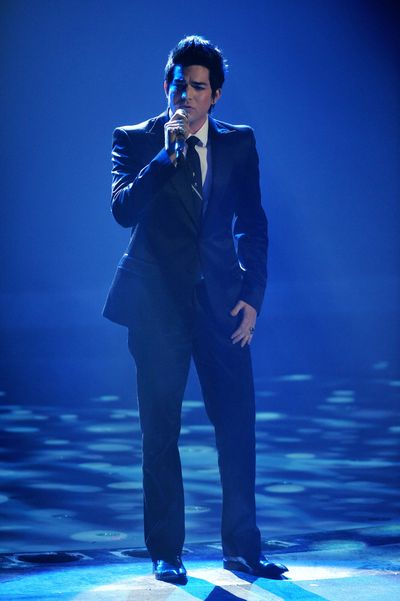Television: Lambert on own level of impressive

For many faithful fans, this year’s “American Idol” has exactly one contestant: Adam Lambert.
Others might impress, but compared with the 27-year-old former chorus boy with the unearthly vocal range, they all fall somewhere between “average” and “decent.”
America may love Danny Gokey like a brother and think Allison Iraheta is pretty cool, but in Lambert, audiences confront something never before seen on the show: The kind of pop star who can change people’s lives.
The life-changing pop stars Lambert emulates, including David Bowie, Prince and Madonna, open up the doors to alternative universes. Through their music, their style, their way of moving through the world, admirers can dream of a life beyond the confines of their “normal” lives.
The dream space Lambert opens up is one in which sexuality is fluid. Whether or not he ever publicly confirms his sexual orientation, he’s forever associated with the androgynous, exploratory spirit of the scenes he’s inhabited.
For last week’s “Disco Night,” aware of America’s affection for his slow jams, Lambert abandoned the cowbell and kick drum in favor of a reworking of Yvonne Elliman’s “If I Can’t Have You,” from “Saturday Night Fever.”
The judges praised him, as always, but Simon Cowell did make one dubious aside: “I would have bet $10,000 you would have done Donna Summer.”
Cowell’s assumption contained a grain of insight. Not only is Lambert the only “Idol” striver left with gifts on par with disco’s legendary divas, but as an emissary from a more sexually diverse realm than this family show can ever present, he had a chance to do his community proud.
For young gay men (and those like “Idol” judge Paula Abdul who love them), disco presents a complicated legacy. It’s the music of liberation, of communal pleasure and pride. But it’s also linked to an era of abandon that preceded the tragedy of the AIDS epidemic.
Plus, it’s hardly hip and young. Though club kids keep reinventing beats and finding new divas to adore, they have distanced themselves from their elders; to many, the tight T-shirts of the Castro clone are as trite as the love beads of the old hippie or those pictures in the family album of Mom marching bra-less on Washington.
Still, disco is music about freeing your sensual and sexual sides, and about trying on different shades of male and female – about “shopping in the women’s department,” as Abdul said Kris Allen did by playing a Donna Summer song, or knowing, as Anoop Desai did, that “real men wear pink.”
Lambert chose to not take that kind of chance on disco night. But then, he has been taking chances all season long, and probably all his life.
Tonight “Idol” turns its attention to the stylings of the Rat Pack. Maybe Lambert will stretch the show’s parameters again, and find his own way into that very traditional masculine world.
He’d surely have no problem with Frank Sinatra’s songbook, but I’m hoping for some Elvis Presley. Viva Las Vegas!